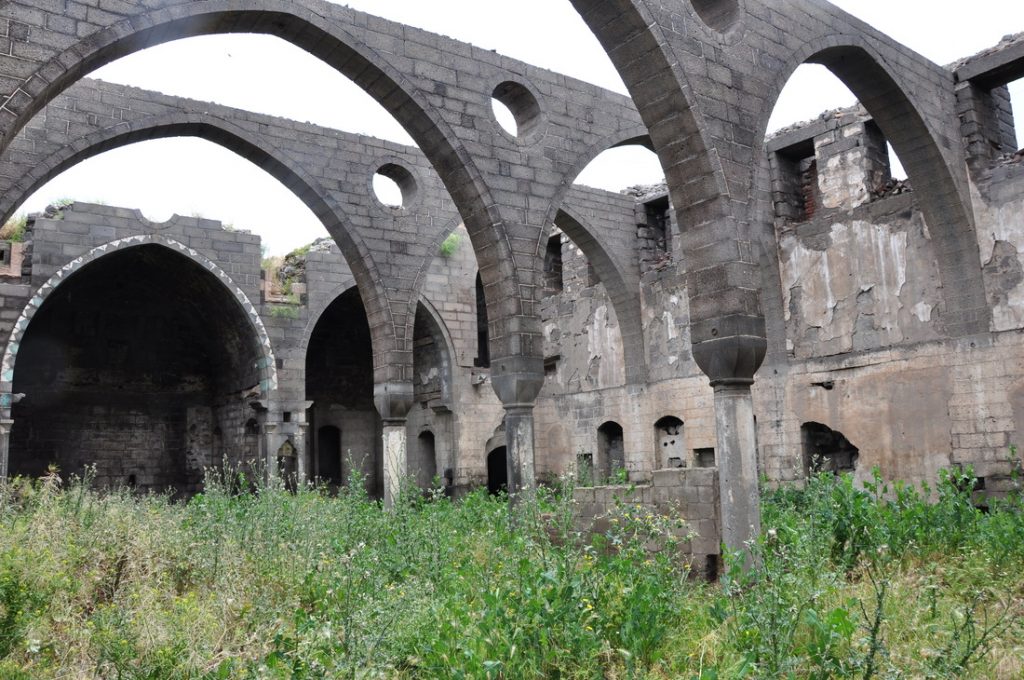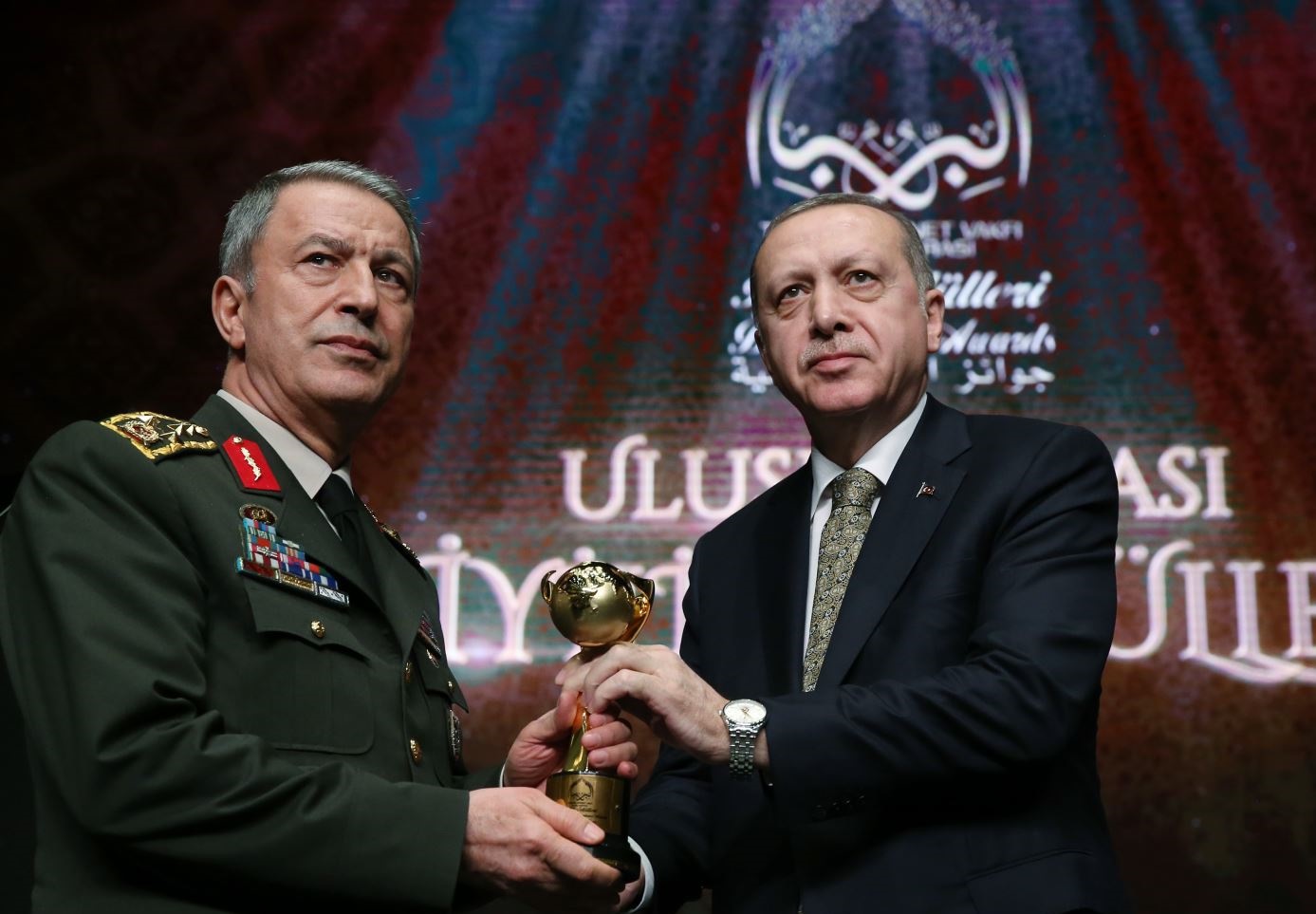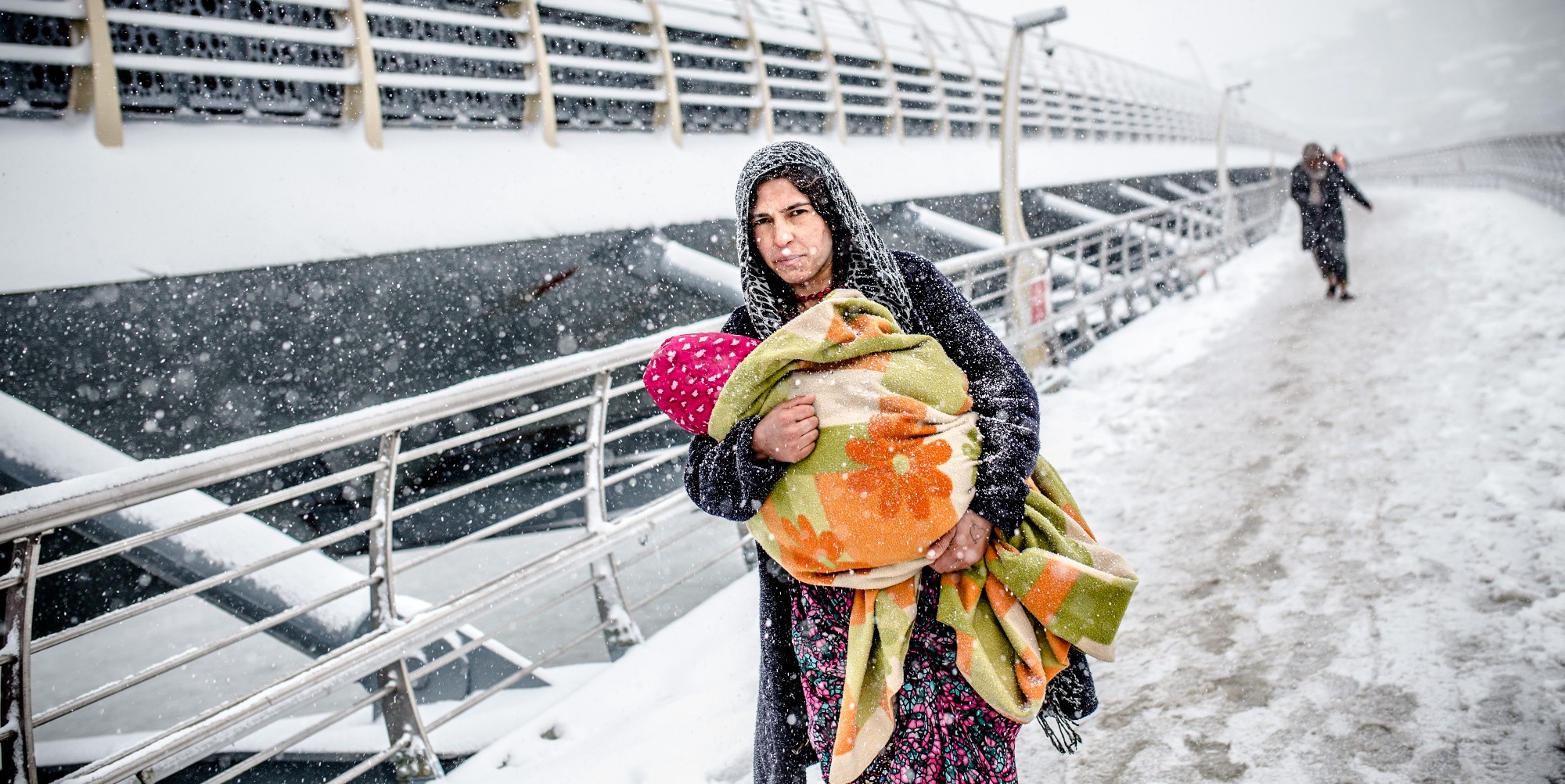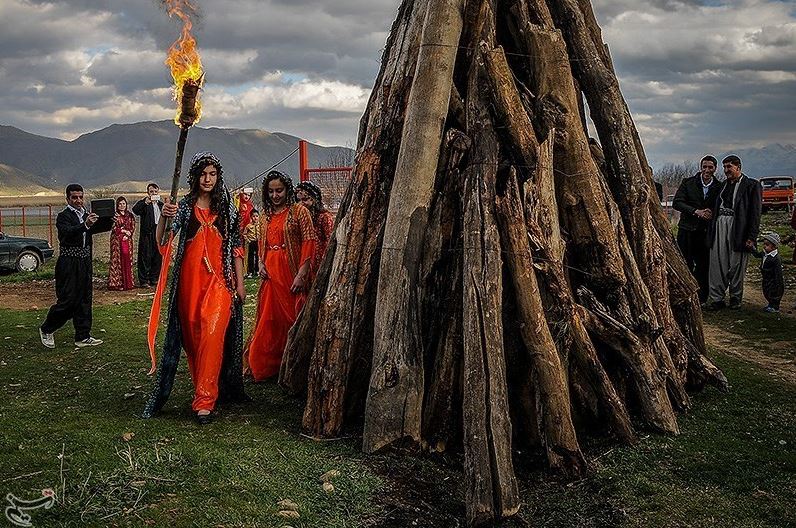The Inconvenience of Peace
[dropcap size=big]T[/dropcap]here was a paradox in the relative leniency on Kurdish cultural and political expression that was permitted in the first 13 years of Erdoğan’s AKP (Justice and Development Party) rule. While Erdoğan was able to garner essential Kurdish votes with his limited concessions, the open atmosphere also allowed for an unprecedented level of Kurdish political assertion.
The rise of the HDP (Free Democrat Party), a political coalition of Kurds, other minorities, and leftists, nearly undid Erdoğan’s political ascendency. In the run-up to the June 2015 general election, Erdoğan summed up his lack of serious committal to the Kurdish problem by stating “There is no Kurdish problem anymore.
What else do you [Kurds] want?” Despite the meager improvements, many Kurds were skeptical of Erdoğan’s intentions, and believed that they still lived in a country that systematically denied them their cultural and political rights. To them, the HDP was the only party that took any serious initiative to solving the minority rights issue for reasons other than the currying of votes.
Hatred of the HDP and its vision of a multicultural Turkey has meant that it is often the target of attacks. The first significant occurrence was in Diyarbakır on June 5, 2015, when a rally hosting Selahattin Demirtaş, the leader of the HDP, was bombed. 5 people were killed, and over 100 were injured. While ISIS was suspected of committing the attack, the government never thoroughly investigated the situation and the perpetrators were never fully uncovered, setting precedent for the handling of future investigations of violence against Kurdish political targets. Two days later, the HDP defied all expectations and entered the Turkish parliament with nearly 14% of the vote, breaking Erdoğan’s majority rule for the first time since he gained it.
For Erdoğan, there was nothing more to gain from Kurds and plenty to lose. The collapse of the peace process soon followed.
Dismantling Progress
In Diyarbakır, the resumption of violence has proven to be catastrophic. An OHCHR (Office of the United Nations High Commissioner for Human Rights) report from March 2017 has estimated thousands of causalities in the Turkish southeast, mainly centered in Diyarbakır and the smaller towns in its vicinity.
By late 2015, images of urban destruction became common, as fighting between the PKK and government forces took over Diyarbakır, and in particular, Sur. The work of Abdullah Demirbaş and other local intellectuals was hastily and deliberately shattered. One of the reasons that Sur was the site of so much conflict was due to its urban layout – narrow and winding streets gave the PKK a labyrinth in which they could fight against government forces.
The result was widespread devastation, as buildings and people were caught in the crossfire. In reaction, Turkish security forces made the unprecedented move of dismantling the labyrinth by simply destroying large swaths of Sur, regardless as of whether or not the structures were populated or had historic value.
The result has been, according to the same OHCHR report, at least 355,000 displaced people from Diyarbakır and other cities. Thousands of families in Sur have woken up to the news that their property has been allocated for demolition, generally with no due compensation.
One Diyarbakır lawyer I spoke to on the condition of anonymity said that their entire family was forced to relocate to nearby Antep. “Our home has not been destroyed, but life has become so dangerous that it’s impossible to make a living. The economy is nonexistent. Even in the 80s, the violence didn’t force us to leave, but this is different.”
Surp Giragos Church, the symbol of Diyarbakır’s revival, was forcibly expropriated by the Turkish government and has since been closed to worship. There is no news of when it will be returned to the Armenian community, but there is news that its interior was recently desecrated. In February 2016, former Prime Minister Ahmet Davutoglu said “…we’ll rebuild Sur so that it’s like Toledo: everyone will want to come and appreciate its architecture.”
In Erdoğan’s Turkey, restorations of historic districts have generally focused on constructing boutique hotels and emphasize a fantastical Ali Baba-esque interpretation of a district’s Islamic heritage. In Sur, this will mean the ousting of the district’s poor residents and businesses, and it is likely to leave out any meaningful nod to the city’s Armenian heritage.
Politicians, teachers, and public workers have also been removed from their posts following the ceasefire collapse. The OHCHR has reported that an atmosphere of “systematic impunity” against Kurdish citizens has taken hold since the implementation of Law No. 6722 in June 2016.
Moreover, the Turkish government has shown very little interest in bringing justice to Kurds who have been subjected to violence. Take the case of Tahir Elçi, a Kurdish human rights lawyer and activist who was murdered on the streets of Diyarbakır in November of 2015. The Turkish government simply blamed the PKK and never found his assassin, and the case will likely never be solved.
The July 2016 coup attempt saw the crackdown increase exponentially, as Erdoğan has become increasingly paranoid about any form of opposition. Though he claims to be targeting Gulenists, his purges of the judiciary, police forces, educational sectors, and media have made no distinction – whoever is suspected of being against Erdoğan is dismissed.
The OHCHR reports “these measures appear to have largely targeted dissent in general and political parties of the opposition in particular, disproportionately affecting citizens of Kurdish origin. Of particular concern is the massive scale of dismissals of public officials, especially of school teachers; the mass arrest of members of parliament belonging to the HDP and of municipal mayors in majority Kurdish areas; and the closure of almost all Kurdish language local and national media outlets and the arrests of their journalists.
Moreover, decrees published using emergency powers have severely restricted access to justice and fair trial guarantees.”
Although the HDP was elected to represent Diyarbakır, it was replaced by the Turkish government with an AKP-appointed caretaker for an unspecified period of time.
The renaissance of Kurdish rights and Armenian representation, and the wider vision of reform that Abdullah Demirbaş had worked so hard to cultivate in Diyarbakır has been abandoned and deliberately destroyed by the AKP.
Since late 2015, Diyarbakır has become one of the main theaters in which Erdoğan and his cohorts have enacted their paranoia and violent intolerance for dissent. That Diyarbakır is a city with a largely non-Turkish identity, coupled with its strong tradition of activist politics, means government measures against it and its citizens are exceptionally brutal.
Diyarbakır has never been a city that the central authorities in Turkey have understood. With a non-Turkish majority and considerable non-Islamic heritage, it was destined to be a city that would languish under the pressure of the centralizing and nation-building efforts of modern Turkey.
That the city had a taste of grassroots self-expression which led to relative reinvigoration and prosperity before it was cruelly taken away makes today’s situation all the more bitter.
*Philip Bernard Kowalski is a US based researcher who completed his MA at the London School of Oriental and African Studies, where he studied Kurdish history. He previously lived in Turkey from 2012-2016, during which he traveled extensively across Turkey, the Kurdish southeast, and the Syrian-Turkish border, where he witnessed the rise and fall of the peace process between the Turkish government and the PKK.
- Khashoggi , Journalism and Erdogan - 13/11/2018
- Turkey’s Christians Caught Between Trump and Erdoğan - 30/08/2018
- Istanbul Pride is too Big to Suppress - 16/07/2018



